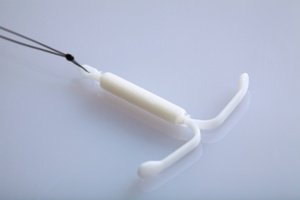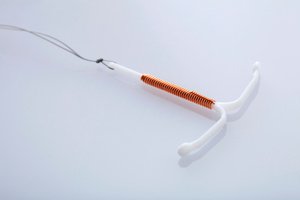When the topic of sexually transmitted diseases (STD) comes up, many people focus on the types of infections that are passed through sexual intercourse. In fact, some people believe that they cannot get a sexually transmitted infection (STI) if they are not having penetrative sex. However, it is important to keep in mind that some sexually transmitted diseases can also be transmitted orally.
About Oral Sexually Transmitted Diseases

An oral sexually transmitted disease is a type of disease that is passed through oral sex. This refers to any type of sexual activity in which another person’s lips, tongue or mouth will come into contact with their partner’s genitals or their anus. Although you cannot get pregnant from this type of sex, it is still important to use protection given the possibility of transmitting or contracting an infection.
Sexually transmitted infections are passed through both sexual fluids and skin-to-skin contact. This means that if infected genital tissue comes into contact with tissues in the throat or mouth, an STI can be passed. Fluids do not need to be involved; any type of sexual contact does come with a risk of passing an infection. It is also important to note that some STIs, such as gonorrhea, can spread within the body, meaning that a disease that mostly affects the genitals could be transmitted through oral contact with the genitals of your partner.
Although the risk of contracting an infection in this manner is lower than the risk of getting one through vaginal or anal sex, several serious STIs can be transmitted orally. These include herpes, chlamydia, syphilis, HPV, and gonorrhea.
Chlamydia
Chlamydia is caused by a type of bacteria and is the most frequently reported type of bacterial sexually transmitted infection in the US. It often causes no symptoms, although people may experience a sore throat, and it can be cured using the right antibiotics.
Gonorrhea
Gonorrhea is another common type of sexually transmitted disease caused by bacteria, and it can be passed through oral sex. Although there may not be any symptoms, those that do appear often show up around a week after exposure. Antibiotics can often cure gonorrhea, but there are increasing reports of drug-resistant strains.
Syphilis

Syphilis is another sexually transmitted infection caused by bacteria that can be transmitted orally, but it is less common than the other infections. Although antibiotics can cure it, those who do not detect it and receive treatment could experience serious health complications such as neurological and organ damage.
Oral Herpes
Herpes simplex (HSV1) is also known as oral herpes, and cold sores are one of the most obvious symptoms. However, it can be contracted or transmitted even when a person is not showing any symptoms. It is a lifelong condition that cannot be cured, although antiviral medication can help ease discomfort and keep outbreaks under control.
HPV
Human papillomavirus, or HPV, is the most common sexually transmitted infection in America.
It does not always have symptoms, although there may be warts in the throat or difficulty speaking in those who have contracted it orally. HPV is concerning because it can lead to mouth or throat cancer. However, many HPV transmissions will be cleared by the body on its own.
Protecting Yourself From Oral Sexually Transmitted Diseases
Barrier methods such as condoms and dental dams are two good options for protecting everyone involved in oral sex. Condoms must be placed in a manner that completely covers the penis and must be thrown away after each use. It is also important to change a condom between oral sex and penetrative sex.

A dental dam, meanwhile, can cover the vulva and the vagina or anus. These can be purchased in most places that sell condoms, and they can only be used once before they must be thrown away. It is also possible to make your own by cutting a regular condom into the appropriate shape.
It is important to avoid having oral sex if you or your partner are experiencing any sores or cuts in or around the mouth, a sore throat, or an infection of the throat or mouth. You should avoid sex with a partner who has a visible lump, ulcer, or sore on their genitals, mouth, or anal area, even if you use a condom. Ask men not to ejaculate inside of your mouth, and you can also reduce the risk of infection by avoiding brushing your teeth or flossing immediately before oral sex.
Reach Out to Raleigh Gynecology & Wellness
If you believe that you may have contracted a sexually transmitted infection via oral sex or have any symptoms, contact Raleigh Gynecology & Wellness to schedule an appointment for a sexual health check. Beginning treatment as soon as possible can make a big difference.








